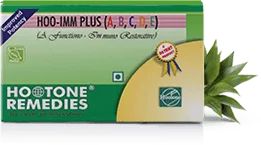Kidneys failure treatment is given as per the damage caused. If 50% Glomerular filtration rate (GFR) remains, the patient is given preventive treatment which controlling the kidney infection and causes of damage prevents additional damage. Through medication we can control the pace of disease, but cannot recover kidneys. If somebody claims that he would recover kidneys in full and patient would not need dialysis, he fools common folk and wastes patient's time.
If Glomerular filtration rate (GFR) goes below 10%, dialysis becomes a must. Dialysis may be of two types:
Peritoneal Dialysis, blood filtration through a tube inserted in abdomen. This is possible both in hospital and home. This way Peritoneal Fluid is removed through the tube inserted in the abdomen. The fluid removed takes along the harmful substances. This is a little slow process and does not require machine.
Haemodialysis, blood filtration through machine removes excess fluids and unnecessary water from the body through machine using an artificial kidney made of plastic. Such type of dialysis takes four hours and patient has to undergo it thrice a week as recommended, but twice a week also does. Patients have a little operation named AV fistula on arm in Hemodialysis. In case of emergency a special tube is inserted beneath shoulder or in the vein at the meeting point of legs and abdomen for time-being dialysis.
If kidneys fail completely, the best treatment is kidney transplantation, which lets patient lead normal and healthy life thereafter. Both kidney donor and receiver should be of same blood group, besides, transplantation would be as much successful as much similar would be white blood cells and tissues of both donor and receiver. If there is any blood relation between donor and receiver, like son father, mother daughter or siblings, transplantation is most likely to succeed. In case of unavailability of kidney from relatives others kidney may also be transplanted. In most of the countries round the world kidneys of deceased people are being successfully transplanted. If the donor is a relative the ratio of success is 90%. In case the donor is other than relative the success ratio is reduced to 85% and it is 80% for five years, if kidney is taken from a deceased person.
Whatever we eat, is it food or medicine, its end products pass through kidneys. Frequent medicine use may affect the function of liver and kidneys especially Kushtas and prescriptions of uncertified self-claimed Hakeem's should be strictly avoided. Kushtas include heavy metals which destroy the membrane of liver and kidneys deform the organs and damage them completely in slow process. High blood pressure patients and diabetics should control blood pressure and diabetes as to reduce their adverse effect on kidneys to least possible extent.
Diabetics should especially take care of Urinary Tract Infection UTI and immediately consult physician and get urine tested, if there is any acidity in urine. Water intake should be increased so that waste materials get removed with urine. Staying at home one should take at least 2-2.5 liter water. Water intake must be increased in summer season or working outdoors in sunlight. If somebody finds his eye circle swollen, he should immediately consult the doctor. Swelling on leg is also a sign of kidney failure.
Unanipathy offers effective medicines with quick results for kidney failure. Luminaries of Unanipathy in ancient time told that Samgh-e Arabi with the combination of some other supportive herbs was useful for kidney treatment. Modern Unanipathy has reinforced the idea that Unani treatment not only restores patient to health but after a few months of treatment patient does not need dialysis. The treatment is easy and with patience and consistency for a long time, prevents additional damage, provided a few things said below taken into consideration:
 Blood pressure should be controlled.
Blood pressure should be controlled. Proper weight should be maintained.
Proper weight should be maintained.  Level of Fat; such as Cholesterol and Triglycerides should be kept in control.
Level of Fat; such as Cholesterol and Triglycerides should be kept in control. Tobacco consumption should be given up at all.
Tobacco consumption should be given up at all. The HOO-IMM PLUS (A, B, C, D, E) is an absolutely new, novel, pioneering and revolutionary concept from Unani Herbal to medical science. It is a very safe, efficacious Indian medicine for the relief of AIDS according to the degree & stage of affliction.
View More